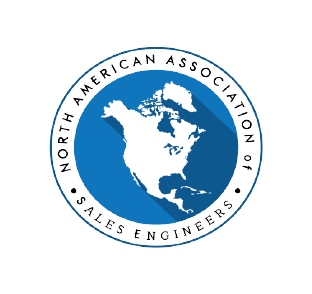North American Association of Sales Engineers
Key skills for sales engineers to leverage T-MEC and nearshoring

In recent years, the phenomenon of nearshoring has gained momentum in Mexico, which has significant implications for the United States in terms of trade and investment. Nearshoring refers to the outsourcing of services and commercial activities to suppliers located in nearby or neighboring countries, rather than doing so in distant or off-continent locations.
In the case of Mexico, the entry into force of the T-MEC (United States-Mexico-Canada
Agreement) in 2020 has been a catalyst for the increase in nearshoring, as the treaty
establishes new trade rules among the three countries, promoting investment and economic growth in the region.
Nearshoring in Mexico has significant implications for the United States, as many of the
investors and companies that are outsourcing services and commercial activities are American or have their headquarters there. Therefore, nearshoring is expected to increase trade and investment between the two countries, as well as increase competition in national and international markets.
It is time for suppliers to take advantage of this opportunity and offer world-class products and services to the industry arriving in the country.
For sales engineers in Mexico, this implies that they must be prepared to meet the needs of the new companies arriving in the country through this phenomenon. This includes a deep understanding of the needs and expectations of these companies, as well as the ability to communicate and relate effectively with them. Now more than ever, it is important to act as a consultant when selling and know how to assist others.
In terms of skills that sales engineers should acquire to show their products or services to new companies with appropriate professionalism, it is important to highlight the following:
Market knowledge: Sales engineers must have a detailed knowledge of the market in
which they want to sell their products or services, including the industry, competitors,
market trends, and local regulations.
Effective communication skills: Sellers must have effective communication skills to
establish trust relationships with customers, understand their needs, and convey the
benefits and features of their products or services.
Intercultural skills: Given that many of the investors and companies outsourcing
services and commercial activities in Mexico are American, sellers must have
intercultural skills to communicate effectively and establish trust relationships with clients
from different cultures. Of course, English language skills are essential to add value.
Technical knowledge: To sell technical products or services, sellers must have
adequate technical knowledge to understand the technical features of the products and
services they are offering.
Negotiation skills: In the sales process, there will always be situations that require
strong negotiation skills. Sellers must have the ability to understand the customer’s point
of view and be prepared to make concessions to close a deal.
In conclusion, nearshoring in Mexico has significant implications for the United States in terms of trade and investment. Sales engineers must be prepared to meet the needs of the new companies arriving in Mexico through this phenomenon, acquiring skills that go far beyond quality, price, and specification compliance. With these skills, sales engineers can establish solid and lasting business relationships with companies that are outsourcing services and commercial activities in Mexico, allowing them to make the most of the opportunities offered by nearshoring and T-MEC. In summary, sales engineers who are prepared and acquire the appropriate skills can thrive in the context of nearshoring in Mexico and capitalize on the growing investment and trade market between the United States and Mexico.
Thanks to the Author of this article Luis Vasquez.


